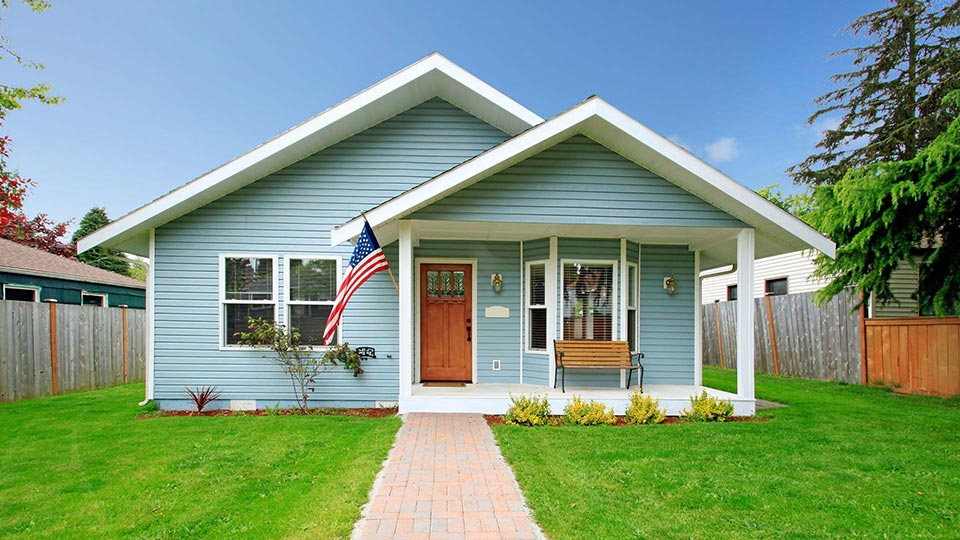To buy a house without a down payment, explore VA loans or USDA loans. These options require no money down.
Purchasing a home without a down payment is possible with the right loan programs. VA loans cater to veterans and active military members, offering zero down payment. USDA loans target rural and suburban areas, also requiring no down payment. Both options come with specific eligibility criteria.
Understanding these programs can help you achieve homeownership without the financial burden of a large initial payment. Always research and consult with mortgage professionals to find the best fit for your situation. This approach ensures a smoother, more affordable path to owning your dream home.
Exploring Zero Down Payment Options
Buying a house without a down payment may seem impossible. But, it’s achievable with the right options. Let’s explore how you can own a home with zero down payment.
Va Loans: A Gateway For Veterans
VA loans help veterans buy homes with no down payment. This loan is backed by the Department of Veterans Affairs. To qualify, you must be an active-duty service member, veteran, or eligible family member.
Benefits of VA loans include:
- No down payment required
- No private mortgage insurance (PMI)
- Competitive interest rates
These benefits make VA loans a great option for eligible veterans. Check your eligibility on the VA website.
Usda Loans: Rural And Suburban Home Buying
USDA loans offer zero down payment for rural and suburban homebuyers. The U.S. Department of Agriculture backs these loans. They aim to promote homeownership in less populated areas.
To qualify for a USDA loan, you must:
- Buy a home in an eligible area
- Meet income requirements
- Use the home as your primary residence
USDA loans have many advantages:
- No down payment needed
- Low mortgage insurance costs
- Low interest rates
Explore USDA loan options if you’re buying in a rural or suburban area. Check the USDA eligibility map for qualified areas.
Leveraging Government Programs
Buying a house without a down payment may seem impossible. Fortunately, leveraging government programs can make this dream a reality. These programs offer financial assistance and incentives to help you secure a home without hefty upfront costs.
Good Neighbor Next Door: Heroes’ Haven
The Good Neighbor Next Door program is a fantastic option for public servants. This program is specially designed for:
- Teachers
- Law enforcement officers
- Firefighters
- Emergency medical technicians (EMTs)
These heroes can purchase homes at a 50% discount. The home must be in a HUD-designated revitalization area. You must live in the home for at least 36 months. This program makes homeownership affordable for those who serve the community.
Energy-efficient Mortgage (eem): Going Green Saves More
Energy-Efficient Mortgage (EEM) helps you buy a home and make it energy-efficient. This program lets you roll the cost of energy improvements into your mortgage. Here’s how it works:
- Get an energy assessment of the home.
- Identify cost-effective energy upgrades.
- Add the cost of these upgrades to your mortgage.
EEMs reduce utility bills and increase home value. They also make it easier to qualify for a larger loan. This is a win-win for eco-conscious buyers looking to save money.
| Program | Benefits |
|---|---|
| Good Neighbor Next Door | 50% discount for public servants |
| Energy-Efficient Mortgage (EEM) | Finance energy improvements within the mortgage |
Understanding Gift Funds
Buying a house without a down payment can be challenging. One way to achieve this is through gift funds. These are funds given to you by someone else, typically a family member. They can help cover the costs of purchasing your new home. Understanding how gift funds work is essential for a smooth home-buying process.
Family Contributions: A Helping Hand
Family contributions are the most common source of gift funds. A family member, such as a parent, sibling, or grandparent, can provide the money you need. This can make it easier to secure a mortgage without a down payment.
- Parents: Often the most common source of gift funds.
- Siblings: Brothers and sisters can also contribute.
- Grandparents: Grandparents may also help.
It’s important to have a clear understanding with your family members. They need to know the funds are a gift, not a loan. This ensures there are no misunderstandings later.
Documentation And Tax Implications
Proper documentation is crucial when using gift funds. Lenders require a gift letter. This letter must include:
- The donor’s name and contact information.
- The relationship between the donor and the recipient.
- The amount of the gift.
- A statement that the funds are a gift, not a loan.
Here is an example of a gift letter template:
Gift Letter Template
--------------------
Donor's Name:
Donor's Address:
Recipient's Name:
Recipient's Address:
Relationship to Recipient:
Amount of Gift: $
Statement: "This is a gift with no repayment required."
Tax implications also need to be considered. The IRS allows individuals to gift up to a certain amount without tax consequences. For 2023, the limit is $17,000 per person, per year. If the gift exceeds this amount, the donor may need to file a gift tax return.
| Year | Gift Tax Limit |
|---|---|
| 2022 | $16,000 |
| 2023 | $17,000 |
By understanding gift funds, you can buy a house without a down payment. This makes homeownership more accessible and achievable.
:max_bytes(150000):strip_icc()/how-much-do-we-need-as-a-down-payment-to-buy-a-home-1798252_FINAL-d436ccb9c27f4ced9c60c70eb01a4fdb.png)
Credit: www.thebalancemoney.com
Navigating Seller Concessions
Buying a house without a down payment can be challenging. One option is to explore seller concessions. Seller concessions are contributions a seller agrees to pay toward the buyer’s closing costs. This can significantly reduce your out-of-pocket expenses.
How To Negotiate For Seller-paid Costs
Negotiating for seller-paid costs requires preparation and strategy. First, understand the market. In a buyer’s market, sellers may be more willing to offer concessions. In a seller’s market, you will need a strong offer.
Next, present your request clearly. Communicate your need for seller-paid costs early in the negotiation. Use a real estate agent to help you navigate this request. They have experience and can present your case effectively.
Finally, be ready to compromise. Sometimes, sellers might agree to pay certain costs but not all. Knowing which costs are most important to you will help you prioritize.
Limits And Legalities
There are limits to seller concessions. These limits vary based on loan types:
| Loan Type | Maximum Seller Concession |
|---|---|
| Conventional | 3-6% of the purchase price |
| FHA | Up to 6% |
| VA | Up to 4% |
Always check the legalities involved. Some states have regulations on what can be included in seller concessions. Consult with your real estate agent or attorney to ensure compliance.
Knowing your limits and legalities will empower you. This knowledge helps in making informed decisions and successful negotiations.
Creative Financing Strategies
Buying a house without a down payment may seem impossible. But, there are creative financing strategies that can help you achieve this dream. These methods can make homeownership accessible for many. This section will explore two popular strategies: Lease to Own and Piggyback Loans.
Lease To Own: A Stepping Stone
A Lease to Own agreement allows you to rent a home with the option to buy it later. This approach has several benefits:
- You can live in the home while saving money.
- A portion of your rent may go toward the purchase price.
- You get to know the home and neighborhood before buying.
This agreement typically involves an option fee. This fee is a small percentage of the home’s price. It gives you the right to purchase the home in the future. The option fee is usually non-refundable but can be applied to the purchase price.
Piggyback Loans: Combining Mortgages
Piggyback Loans involve taking out two mortgages simultaneously. This strategy can help you avoid a down payment. Here is how it works:
- First mortgage: Covers 80% of the home’s price.
- Second mortgage: Covers 10-20% of the home’s price.
- You only need to pay closing costs and fees.
The first mortgage is usually a traditional loan. The second mortgage can be a home equity loan or line of credit. By combining these loans, you can finance the entire purchase. This method can also help you avoid private mortgage insurance (PMI).
Important note: Ensure you can handle two monthly payments. This strategy requires careful financial planning.

Credit: homebuyer.com
Preparing For The Purchase
Buying a house without a down payment is possible. It requires careful planning and preparation. Focus on improving credit scores and saving for closing costs. Let’s dive into these essential steps.
Improving Credit Scores
Your credit score plays a crucial role in securing a home loan. A higher score can lead to better terms and interest rates. Here are some effective ways to improve your credit score:
- Pay bills on time.
- Reduce credit card balances.
- Dispute any errors on your credit report.
- Avoid applying for new credit before buying a house.
Monitor your credit report regularly. Use free tools like AnnualCreditReport.com to check your score. Correct any inaccuracies promptly to boost your score further.
Saving For Closing Costs And Other Expenses
Even without a down payment, you need funds for closing costs. These costs can include:
| Expense | Estimated Amount |
|---|---|
| Appraisal Fee | $300 – $500 |
| Home Inspection | $300 – $500 |
| Title Insurance | $500 – $1,000 |
| Attorney Fees | $500 – $1,000 |
Create a savings plan to cover these costs. Cut unnecessary expenses and save a portion of your income each month. Consider setting up a separate savings account for these expenses.
In addition to closing costs, budget for moving expenses and any immediate repairs. A solid budget ensures you’re financially prepared for your new home.

Credit: themortgagereports.com
Frequently Asked Questions
Can I Buy A House With No Down Payment?
Yes, several programs and loans exist to help you buy a house with no down payment.
What Are Zero Down Payment Loans?
These are loans where you don’t need to pay any money upfront. VA and USDA loans are popular options.
Are Va Loans Available For No Down Payment?
Yes, VA loans are specifically designed for veterans and usually require no down payment.
What Is A Usda Loan?
A USDA loan is a zero down payment mortgage for eligible rural and suburban homebuyers.
Can I Use Gift Money For A Down Payment?
Yes, many lenders allow gift money from family for your down payment. Check the specific lender’s rules.
What Are Down Payment Assistance Programs?
These programs provide grants or loans to help cover your down payment and closing costs. They vary by location.
Conclusion
Securing a home without a down payment is achievable with the right strategies. Explore government programs, VA loans, and other options. Research thoroughly and consult experts to make informed decisions. By following these tips, you can own a house without the burden of a large upfront payment.
Start your journey to homeownership today.

